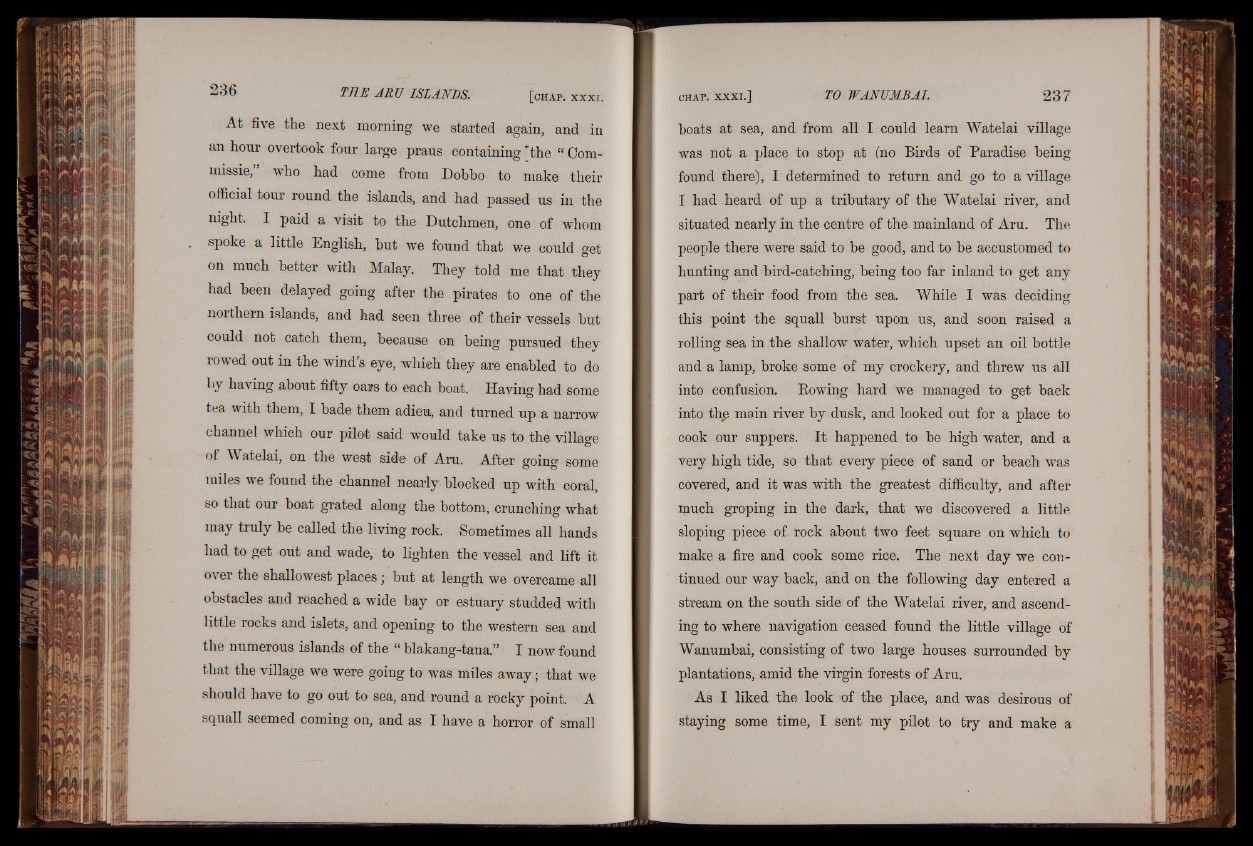
At five the next morning we started again, and in
an hour overtook four large praus containing 'the “ Com-
inissie,” who had come from Dobbo to make their
official tour round the islands, and had passed us in the
night. I paid a visit to the Dutchmen, one of whom
spoke a little English, hut we found that we could get
on much better with Malay. They told me that they
had been delayed going after the pirates to one of the
northern islands, and had seen three of their vessels but
could not catch them, because on being pursued they
rowed out in the wind's eye, which they are enabled to do
by having about fifty oars to each boat. Having had some
tea with them, I bade them adieu, and turned up a narrow
channel which our pilot said would take us to the village
of Watelai, on the west side of Aru. After going some
miles we found the channel nearly blocked up with coral,
so that our hoat grated along the bottom, crunching what
may truly be called the living rock. Sometimes all hands
had to get out and wade, to lighten the vessel and lift it
over the shallowest places; but at length we overcame all
obstacles and reached a wide bay or estuary studded with
little rocks and islets, and opening to the western sea and
the numerous islands of the “ blakang-tana.” I now found
that the village we were going to was miles away \ that we
should have to go out to sea, and round a rocky point. A
squall seemed coming on, and as I have a horror of small
boats at sea, and from all I could learn Watelai village
was not a place to stop at (no Birds of Paradise being
found there), I determined to return and go to a village
I had heard of up a tributary of the Watelai river, and
situated nearly in the centre of the mainland of Aru. The
people there were said to be good, and to be accustomed to
hunting and bird-catching, being too far inland to get any
part of their food from the sea. While I was deciding
this point the squall burst upon us, and soon raised a
rolling sea in the shallow water, which upset an oil bottle
and a lamp, broke some of my crockery, and threw us all
into confusion. Rowing hard we managed to get back
into the main river by dusk, and looked out for a place to
cook our suppers. It happened to he high water, and a
very high tide, so that every piece of sand or beach was
covered, and it was with the greatest difficulty, and after
much groping in the dark, that we discovered a little
sloping piece of rock about two feet square on which to
make a fire and cook some rice. The next day we continued
our way back, and on the following day entered a
stream on the south side of the Watelai river, and ascending
to where navigation ceased found the little village of
Wanumbai, consisting of two large houses surrounded by
plantations, amid the virgin forests of Aru.
As I liked the look of the place, and was desirous of
staying some time, I sent my pilot to try and make a